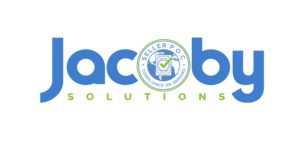The initial list of Priority Products released for Safer Consumer Products Regulations
The initial list of Priority Products released for Safer Consumer Products Regulations were issued on by the California  Department of Toxic Substances Control (DTSC) on March 13, 2014. The three categories of products that DTSC selected for inclusion in the initial proposed list are:
Department of Toxic Substances Control (DTSC) on March 13, 2014. The three categories of products that DTSC selected for inclusion in the initial proposed list are:
- Spray Polyurethane Foam Systems containing unreacted diisocyanates;
- Children’s Foam Padded Sleeping Products containing Tris(1,3-dichloro-2-propyl)phosphate or TDCPP; and
- Paint and Varnish Strippers, and Surface Cleaners with methylene chloride.
The Priority Products listed will not be final until they are adopted into regulation. This process will be done in conformance with California’s rulemaking law – the Administrative Procedure Act (APA). The APA process includes a 45-day public notice and comment period. It allows DTSC up to one year from the public notice date to finalize the regulations. The March 2014 announcement is not the start of formal rulemaking. DTSC anticipates initiation of the rulemaking process for the Priority Products within 12 months. Each Priority Product may have a separate set of regulations.
Children’s foam-padded sleeping products that contain the flame retardant TDCPP have been proposed as an Initial Priority Product. These polyurethane foam-padded sleeping products include:
- Nap mats and cots
- Sleep positioners
- Travel Beds
- Bassinet foam
- Portable crib mattresses
- Play pens
- Car bed pads
TDCPP is also known as chlorinated tris or tris(1,3-dichloro-2-propyl) phosphate. It is a high production volume chemical that is considered a carcinogen by California’s Office of Environmental Health Hazard Assessment.
NEXT STEPS
IF I MAKE A “PRIORITY PRODUCT,” WHAT DO I HAVE TO DO?
If you are a “responsible entity” [a business that manufactures, imports, distributes, sells, or assemble consumer products placed into the stream of commerce in California], you must submit a Priority Product notification to DTSC within 60 days after the effective date of the regulation establishing a product-chemical combination as a final Priority Product. Subsequently, you may be required to perform an Alternatives Analysis—a process that evaluates toxicity and other information concerning the Chemicals of Concern in the product, and compares those data to alternative chemicals or product redesigns that may make that product safer.
DTSC will review Alternative Analysis reports and determine a regulatory course of action, if needed. Responsible entities must comply with the requirements of the Department’s regulatory response. Manufacturers have the principal duty to comply with the regulations. Other responsible entities may include importers, assemblers, or retailers of a Priority Product.
If the manufacturer does not comply, responsibility for compliance falls to the importer. An importer, retailer, or assembler must comply with the requirements applicable to a responsible entity only if the manufacturer has failed to comply and DTSC has notified the importer, retailer, or assembler by posting the information on the Failure to Comply List.
If the manufacturer of a Priority Product fails to comply with the requirements to submit a notification or complete an Alternatives Analysis, the importers must cease to place the product in the stream of commerce in California, and retailers or assemblers must cease ordering the Priority Product and submit a Cease Ordering Notification to the Department.
HOW AND WHEN DO I NOTIFY DTSC IF MY PRODUCT IS A PRIORITY PRODUCT?
The clock will start when the regulations establishing a Priority Product take effect (after rulemaking per the APA is complete). Notify DTSC within 60 days if your product-chemical combination has been adopted as a Priority Product. If a product-chemical combination is introduced into the stream of commerce in California after it has been listed as a Priority Product, the responsible entity must submit a Priority Product notification to DTSC within 60 days of the product’s introduction.
WHAT DOES THE PRIORITY PRODUCT NOTIFICATION INCLUDE? WHAT IS THE FORMAT?
DTSC is developing an online system for electronic submittals of Priority Product Notifications. The Priority Product Notification includes:
- Name and contact information of the responsible entity and whether the responsible entity is the product manufacturer, importer, assembler, or retailer.
- The type, brand name, and product name of the Priority Product. This includes a description of known products where the Priority Product is used as a component of one or more assembled products.
- If applicable, the name of and contact information for the entity that will be complying with the Safer Consumer Product requirements on behalf of or instead of the responsible entity.
- If applicable, an indication that a notification is being submitted stating either that the Chemical(s) of Concern is present in the manufacturer’s Priority Product only as contaminants or at very low concentrations; that the manufacturer intends to remove the Chemical of Concern from the product; or that the manufacturer no longer intends to sell the product in California.
